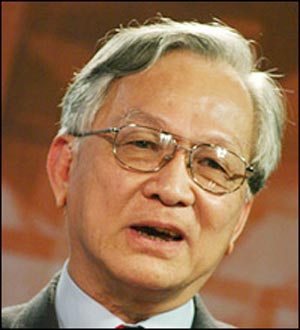INDOCHINA INTERNATIONAL CONSULTING CO., LTD
HO Add: 62L/36 Nguyên Hồng, Ward 11, Bình Thạnh District, HCMC - Vietnam
Biz Office Add: #48 Road No 11, Quarter 6, Hiệp Binh Chánh Ward, Thủ Đức, HCMC - Vietnam
®Source: http://viipip.com should be clearly quoted for any use of information extracted from our website.
Publication permit No: 60/GP-TTĐT , April 05, 2010.


Mr. Bui Kien Thanh.
What is your assessment of the current FDI capital in the country?
Some problems can be seen from last year’s figures. As much as US$64 billion was mobilised, which was an extraordinary figure. But of this, it was impossible to know how much was real and how much was virtual. The answer lies in this year’s actual disbursement.
It is forecast that total FDI will increase to $600 billion in the next decade. Meanwhile, it is estimated that Viet Nam will need about $1 trillion for development in the next decade, with local investments accounting for 30-40 per cent. The thing is that with such a huge FDI, it will impact national economic sovereignty.
Facts have shown that FDI tends to be invested in things that are not necessarily encouraged, such as real estate. What do you think about this?
There are many problems, one of which is that our management office does not make careful assessments before it trusts and licences every Tom, Dick and Harry as soon as they say they will invest $5-7 billion in a business. We have many real estate projects that investors have not yet implemented. It is therefore necessary to check what projects are real or unreal.
One story has it that an investor asked a province if it could lease 100ha of land. Instead of agreeing with the investor, the province requested that it lease 200ha of land, while the real ability of its partner was limited. The result was that more farmers lost their land, and the rest of the country has to suffer the consequences.
Should we then curtail foreign investments?
Yes. We must choose between the quality and quantity of investments. Investment projects that are useful to the country, especially in technology, the environment and social welfare, should be encouraged. We must be determined to reject projects that may have negative impacts. Besides this, we need to think of attracting indirect foreign investments through investment funds abroad.
Could you elaborate on these funds?
They are investment funds that will be established in other countries under foreign laws, but will be managed by Vietnamese. They will attract funds from foreign investors and will invest in projects inside the country.
This will raise the sense of initiative in using foreign funds through supervising capital flows and local projects that are indirectly invested in by foreigners. If the country is able to mobilise between $50 and $100 billion in this way, the volume of FDI capital will reduce to a fairly safe level.
Why don’t we set up these funds inside the country?
The existing legal framework in Viet Nam does not provide adequate guarantee for investors’ interests. And the establishment of a perfect legal framework cannot be done overnight.
It’s necessary to divide the establishment of these funds into two phases. First, companies must be set up to manage foreign investments abroad. Then, contracts must be signed with foreign partners. A fund like this needs to attract senior financial managers and experienced financial staff members. By doing so, investors will feel confident when investing.
What are the difficulties in operating these funds?
Experiences learned from foreign countries have shown difficulties with how to manage and set up projects in a way that foreign investors can trust investing their money in the fund.
This means that all projects calling for investments must ensure their economic efficiency. They must be feasible. Viet Nam needs experienced organisations to build these projects.
- Vietnam will become a destination for Chinese investors in the future (11/6/2023 1:03:19 PM)
- Thua Thien - Hue: Calling for investment (11/6/2023 1:00:42 PM)
- Hai Phong Planning to establish a series of industrial parks and economic zones (11/6/2023 12:58:13 PM)
- The Fastest Growing Economies In 2024 (11/6/2023 12:56:34 PM)
- Hai Phong reached the target of attracting FDI capital (10/17/2023 5:18:21 PM)
- Long An has 1,215 FDI projects with capital of 10,519 million USD (10/17/2023 8:40:41 AM)
- What do FDI enterprises recommend to the Vietnamese Government? (10/17/2023 8:38:33 AM)
- Vietnams 3 commitments to foreign businesses and investors (10/17/2023 8:35:45 AM)
- Up to now (2023), how much money have Asian tigers invested in Vietnam? (10/17/2023 8:31:59 AM)
- Another semiconductor manufacturer expands in Vietnam (10/17/2023 8:30:44 AM)
- Billions of dollars poured into Vietnamese semiconductor projects (10/17/2023 8:26:09 AM)
- Revealing the reason why Central region continuously invested by giants Foxconn, Goertek... (10/17/2023 8:24:49 AM)
- VIFTA: Vietnam-Israel Boulevard opened (8/28/2023 9:29:44 AM)
- Wistron announced to pour another 24.5 million USD into Vietnam to build a new factory. (8/28/2023 9:28:33 AM)
- Formulate policies to develop the logistics industry (8/28/2023 8:50:54 AM)

- Vietnam will become a destination for Chinese investors in the future
- What do FDI enterprises recommend to the Vietnamese Government?
- Up to now (2023), how much money have Asian tigers invested in Vietnam?
- Another semiconductor manufacturer expands in Vietnam
- Billions of dollars poured into Vietnamese semiconductor projects










 ADB: Vietnam’s 2009 GDP growth to be highest in South East Asia
ADB: Vietnam’s 2009 GDP growth to be highest in South East Asia MGM Grand Ho Tram: Vietnam’s First ‘Las Vegas Style’ Integrated Resort
MGM Grand Ho Tram: Vietnam’s First ‘Las Vegas Style’ Integrated Resort Nha Trang’s Twin Towers project licenced
Nha Trang’s Twin Towers project licenced Foreign investors still have good opportunities in Vietnam
Foreign investors still have good opportunities in Vietnam Sierra Wireless gets a foot in Vietnam’s ICT market
Sierra Wireless gets a foot in Vietnam’s ICT market